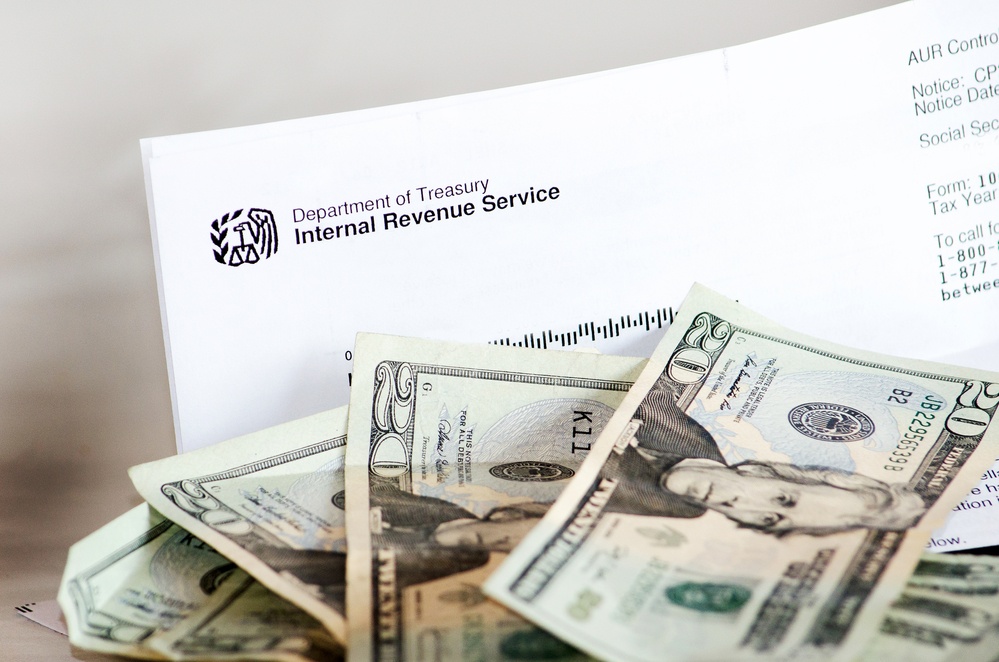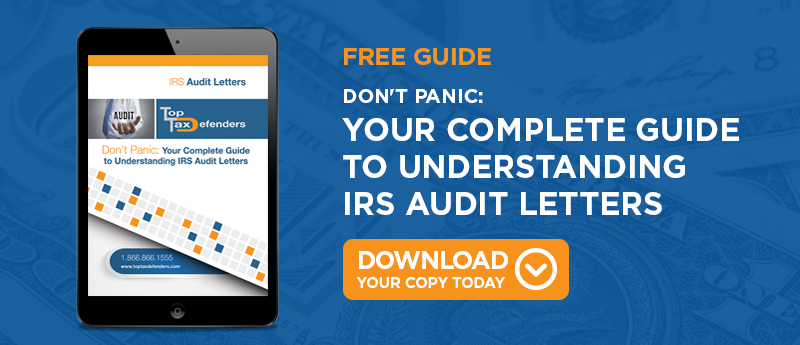 Tax season is stressful enough without having to worry about incurring IRS penalties. The IRS does not randomly assess penalties on people's tax obligations.
Tax season is stressful enough without having to worry about incurring IRS penalties. The IRS does not randomly assess penalties on people's tax obligations.
However, if taxpayers are in violation of the current IRS codes, they could have penalties added onto the tax debts they are already expected to pay. You can protect yourself against such penalties by learning what they are and when the IRS will levy them against your tax obligation.
When are IRS Penalties Issued?
The IRS will add penalties to what you already owe in a tax debt in several situations. The first circumstance that could result in you being penalized is if you owe a past due balance. When you have a balance from previous tax years and have not paid it off yet, you could have penalties assessed to the balance for every year that you fail to pay the balance.
Another reason the IRS will penalize you involves failing to file your taxes at all. When you do not file your taxes or pay what you owe, you will have penalties levied against you, which you will have to pay when you finally file your return. If the IRS owes you a refund, the penalties may be taken out of it, which will lower the amount of money you will receive in a refund that year.
Finally, you will be penalized if you owe estimated taxes but do not make enough payments to cover your liability for it that particular tax year. The penalties will increase the amount of money you owe, which could make it more challenging for you to pay off the debt to the IRS.
An Overview of the Most Common IRS Penalties
Out of all of the penalties that the IRS can levy against taxpayers, three are among the most common. The first type of IRS penalty, which is called the failure-to-file penalty, is not only one of the most common but also one of the most damaging penalties that taxpayers can incur.
This penalty will be assessed if you owe a balance to the IRS and fail to file and submit your return on time that year. You will incur a penalty of five percent of the balance for each month that the balance is overdue. The IRS will cap the penalty at 25 percent, however.
Another reason that the IRS will penalize you is if you fail to pay your balance. When you do not pay what you owe to the IRS, you will be subject to a late payment penalty. The penalty will be assessed at 0.5 percent of the balance for every month that the balance is late. The IRS will also compound interest onto the total balance owed.
The third most common penalty is assessed for underpaying the estimated tax that you owe for the tax year. This penalty ranges from 0.0008 to 2.3 percent of the tax total. Moreover, the IRS tends to be flexible about how and when it assesses this penalty. You may be able to avoid it, however, by being upfront and honest with the IRS about your tax situation and the reason for why you underestimated your tax obligation.
How to Avoid IRS Penalties
You can avoid incurring IRS penalties by following the tax codes for filing and paying your taxes each tax year. You should file on time, pay what you owe, and take extra care when filing your return. By filing on time and avoiding making mistakes on your return, you can avoid paying extra penalties on top of what you may already owe the IRS.
File by the Deadline
The simplest way to avoid an IRS penalty is to file your return and pay what you owe by April 15 each year. This deadline may be two or three days later, however, if April 15 falls on a holiday or a weekend.
Nonetheless, your return should be filed and postmarked by the annual April deadline. If you do not submit your return by the date on time each year, you will be assessed a penalty of five percent for each month that the return is late.
File for an Extension
You also can avoid penalties by asking the IRS for an extension to file and pay your taxes. A number of good reasons exist for why you might need to ask for a tax filing extension. The most common reasons include:
- needing more time to gather income earning statements
- mistakes on your income earning statements
- suffering a serious illness or injury
- being away from home and not being able to file by the deadline
To request an extension for filing your taxes during any particular tax year, you need to fill out and submit IRS Form 4868. You will still be liable for your tax debt that year, however.
You will need to work out an arrangement with the IRS to pay it off satisfactorily. For example, you could request an installment agreement from the IRS so you can pay off what you owe in monthly payments.
Seek Help from a Qualified Tax Professional
If you are not certain about how to avoid IRS tax penalties, you should consult with a tax professional when filing your return. A tax pro can help you if your return is too complicated to file and submit on your own. He or she can make sure you do not underestimate your income or overestimate your expenses, which could result in you being penalized 20 percent by the IRS.
Further, a CPA or a tax specialist can also represent and help you if you are audited. These tax professionals are trained to deal with complicated tax issues like owing back taxes, avoiding tax penalties, and other challenges that can arise when filing your return.
The IRS has the authority to assess penalties if you fail to file or pay your taxes on time. You can avoid costly penalties and file complicated returns by hiring a tax professional to assist you.



